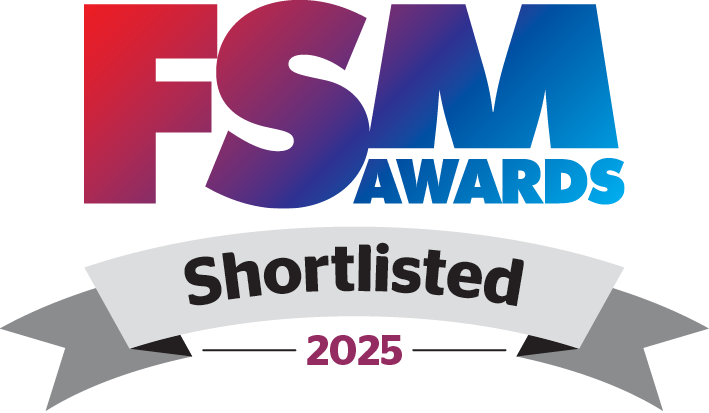Health & Safety: Stress Management and Wellbeing
(1)(1)(1)(2)(3)_1000.jpg)
This session focused on the management of work-related stress & staff wellbeing including: the legal case for managing stress at work; staff wellbeing and support networks; and how promoting employee wellbeing leads to better engagement, reduced sickness absence and higher performance and productivity.
Is Stress Management an HR or H&S issue?
Traditionally Stress Management is recognised as an HR issue due to the tendency for employers to take a reactive approach in handling work-related stress issues. However, more and more we see organisations bridging the gap between HR and H&S when it comes to mental health.
Shifting the focus to a health and safety driven policy changes the direction to a proactive approach for managing staff stress since the primary aim for H&S is to prevent harm – both physical and mental.
Is it a legal requirement?
According to the Health and Safety at Work Act (1974), employers must look after their staff’s welfare as well as their health and safety. Therefore, stress management training and stress risk assessments are indeed a legal requirement.
The HSE cover six key areas employers need to manage which can influence employees’ health, productivity, accident and sickness rates. These Management Standards include:
-
Demands (workload, work patterns and the work environment)
-
Control (how much say the person has in the way they do their work)
-
Support (encouragement, sponsorship and resources provided)
-
Relationships (promoting positive working to avoid conflict and dealing with unacceptable behaviour)
-
Role (understanding job roles and ensuring people do not have conflicting roles)
-
Change (how organisational change is managed and communicated)
Managing these areas directly influences how effective an employer is at facilitating staff stress management and wellbeing.
It is also an employer’s legal duty to consult with staff when changing their health and safety policy.
Where to start?
Start with your fundamentals – your policy. There should be a Wellbeing and Stress Management section which incorporates the HSE Management Standards. Look at how the content works and how you implement the policy daily.
For maintained schools whose policy is provided by their local authority, you may not be able to rewrite the policy, but there is flexibility in how you implement and execute it.
You should also be using both a holistic and individual approach, meaning your overall policy may need to be carried out differently for specific needs of individuals.
Employee Assistance Programs
Having a neutral resource, be it for guidance or counselling, is a great asset. It provides your staff with another possibility to seek help outside of your specific organisation.
Sometimes staff may find it hard to talk about difficult or personal issues. Many individuals may see reaching out to their line manager as daunting. They may be left feeling like they have no one they can report to.
Having a safe, confidential space can be an excellent tool to prevent further work-related stress problems from escalating into HR issues.
Staff Training
Training is at the heart of both preventing and managing stress and wellbeing at work.
Investing in training can make all the difference in effectively implementing a successful H&S policy to foster staff wellbeing.
Line Managers should be trained clearly on how to support their staff. Training needs to be a tiered process. Often, we find those with senior responsibilities who may have to manage work related stress are the ones that actually do not receive the necessary training. HSE use the slogan: ‘Put your own mask on first.’
Some key training initiatives include:
-
Mental Health First Aiders (NB: Mental Health First Aiders are not counsellors or therapists, but are able to approach, listen and signpost for referrals.)
-
Live training courses on stress management
-
e-learning modules
-
General staff training to understand what stress is and to recognise stressors in the workplace
Workplace Support
-
Working practices examples:
-
staff understand that they are not expected to answer emails outside of their working hours and everyone has an email signature stating this.
-
Lunch breaks or welfare break planning implemented
-
Managing presenteeism so staff are not scared of missing work
-
-
Bullying and Harassment policy used in conjunction with HR to manage work relationships.
-
Support systems for bereavement support, retirement planning, and personal stress support.
-
Staff initiatives and incorporating self-care:
-
Little extras have their place, but should be seen as additions as they do not manage or negate workplace stress.
-
We recommend the NHS ‘Every Mind Matters’ App for everyday self-care (please see the link at the bottom of the page)
-
Social, ‘non-work’ catch-ups.
-
Classes or workshops for staff to learn new skills or network.
-
Charity day initiatives which allow staff a day of leave for charity work/ volunteer work.
-
Providing a quiet space that is protected for staff on site.
-
-
Meetings – Staff forums/Team meetings/SLT Meetings/Appraisals for one-to-one structure and support.
Stress Risk Assessments
Personal stress risk assessments are a good example of a combination between formal and informal processes.
When you are approached by a member of staff (informal process), they are often asking for assistance and that triggers the personal stress risk assessment (the formal process).
It is important to keep updating the personal stress risk assessment regularly until the staff member is managing stress more effectively. The risk assessment process kicks in when there is a stress concern of any kind surrounding an employee.
One of the most important proactive things you can do is showing your staff that you are available for conversation. This will allow your staff to approach you in a format that they feel comfortable with whether that is email, phone or zoom.
Asking for external help is very important and together with proper delegation they are fundamental in good H&S practices. It may feel very lonely at the top but it does not have to be. Reach out to your service provider and utilise them, that is what they are there for. (It’s certainly something we support our clients with every day).
Here at Judicium, we are seeing a rise in stress related staff absences. It is important to review policies annually, provide refresher training for your staff, look at what support is available and what can be done to prevent stress.
Always remember Health and Safety is about the bigger picture. What you’ve thought about, revised and implemented today may not show immediate results but will be working away in the background.
Helpful Links
HSE stress resources: https://www.hse.gov.uk/stress/
School specific HSE book: https://www.hse.gov.uk/gohomehealthy/assets/docs/EducationTalkingToolkit.pdf
NHS Every Mind Matters App: https://www.nhs.uk/every-mind-matters/
Mind Charity work related links:
https://www.mind.org.uk/workplace/mental-health-at-work/taking-care-of-your-staff/
https://www.mentalhealthatwork.org.uk/
HSE Homeworking: https://www.hse.gov.uk/toolbox/workers/home.htm
MHFA England Workplace Support: https://mhfaengland.org/mhfa-centre/resources/resource/?id=92ad5582-3ca5-e811-8147-e0071b668081
Judicium is hosting a Stress Management in Schools training course on Tuesday, 16th November from 9am – 12:30pm. This 3-hour course has been designed for delegates to consider the management of workplace stress at an individual and organisational level, enabling them to develop and implement effective strategies to manage stress work to create a positive and supportive work environment. To find out more about the CPD accredited course please click here.
To review Judicium’s forthcoming sofa sessions please click here.
If you require any support in any of these steps, or would like to talk to someone surrounding some support for your school please do not hesitate to call us on 0845 459 2130 or email Georgina.decosta@judicium.com.
Related content
.png)
This blog is based on Judicium’s Health & Safety and SEND session on 26th November with resident expert India Cottenden
.png)
This blog is based on Judicium’s Food Safety Sofa session on 12th November with resident experts Sue Roberts and Tracey Killick

This blog is based on Judicium’s Health and Safety ‘Sofa Session’ on the 15th of October, with our resident expert Mike Wright.

This prestigious award celebrates our commitment to delivering expert, education-specific Health & Safety support that lifts the burden for school teams while raising safety standards across the sector.

This blog is based on Judicium’s Health and Safety ‘Sofa Session’ from 18th June, led by resident expert , Mike Wright, CMIOSH. This session focuses on the control of substances hazardous to health (COSHH) and their relevance in school settings, how assessments should be undertaken and what staff could be at risk.

Discover why Judicium has been shortlisted for Fire Safety Consultancy of the Year at the 2025 FSM Awards, recognising our expert support for schools and trusts in delivering sector-specific, compliant, and practical fire safety solutions.

Sofa Sessions | H&S